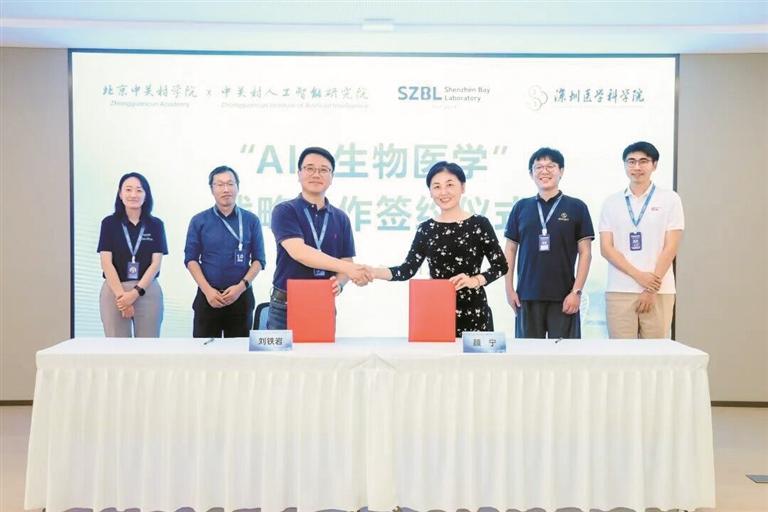
On September 12, the Shenzhen Medical Academy of Research and Translation (SMART) and Shenzhen Bay Laboratory signed a strategic cooperation agreement with Zhongguancun Academy and the Zhongguancun Institute of Artificial Intelligence in Beijing. The four parties will leverage their respective strengths in artificial intelligence, biomedicine, translational medicine, and industrial incubation to accelerate cross-disciplinary integration and collaborative innovation in AI and life sciences.
The signing marks a milestone partnership between two of China's major innovation hubs—the capital and the Guangdong-Hong Kong-Macao Greater Bay Area—bridging regions, disciplines, and institutional frameworks. Under the agreement, the partners will work together on talent training, platform building, project sharing, and joint research outcomes, aiming to create a new “AI + biomedicine” innovation ecosystem.
Yan Ning, director of Shenzhen Medical Academy of Research and Translation (SMART), described the collaboration as a “two-way journey.” She said: “Shenzhen needs AI to empower pharmaceutical innovation, and AI needs real medical scenarios to fuel algorithm iteration. Today's signing is not just about joining hands, but a 'chain reaction' that connects basic research, technological breakthroughs, clinical validation, and industrial application into a seamless pipeline—driving innovation at full speed.”
The signing ceremony was followed by an “AI × Biology” interdisciplinary symposium, which gathered 12 leading experts from both AI and life sciences. Discussions explored cutting-edge topics such as biological dark matter, protein design, neural network quantum chemistry, and genomic language models, showcasing the latest progress at the intersection of the two fields. Breakout sessions and flash presentations fostered lively exchanges on molecular science and genomics/systems biology, sparking new ideas and potential collaborations.
This strategic cooperation represents a significant step forward in advancing the integration of AI and life sciences. It is expected to strengthen China's capacity for frontier scientific breakthroughs, drive industrial development, and provide solid support for national strategic goals.




